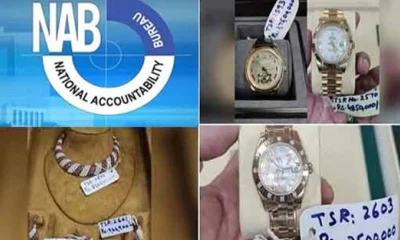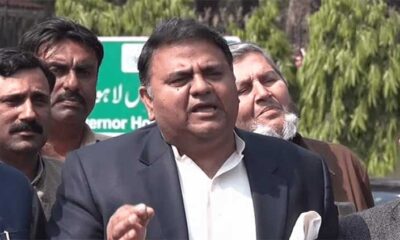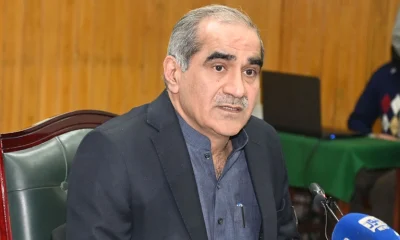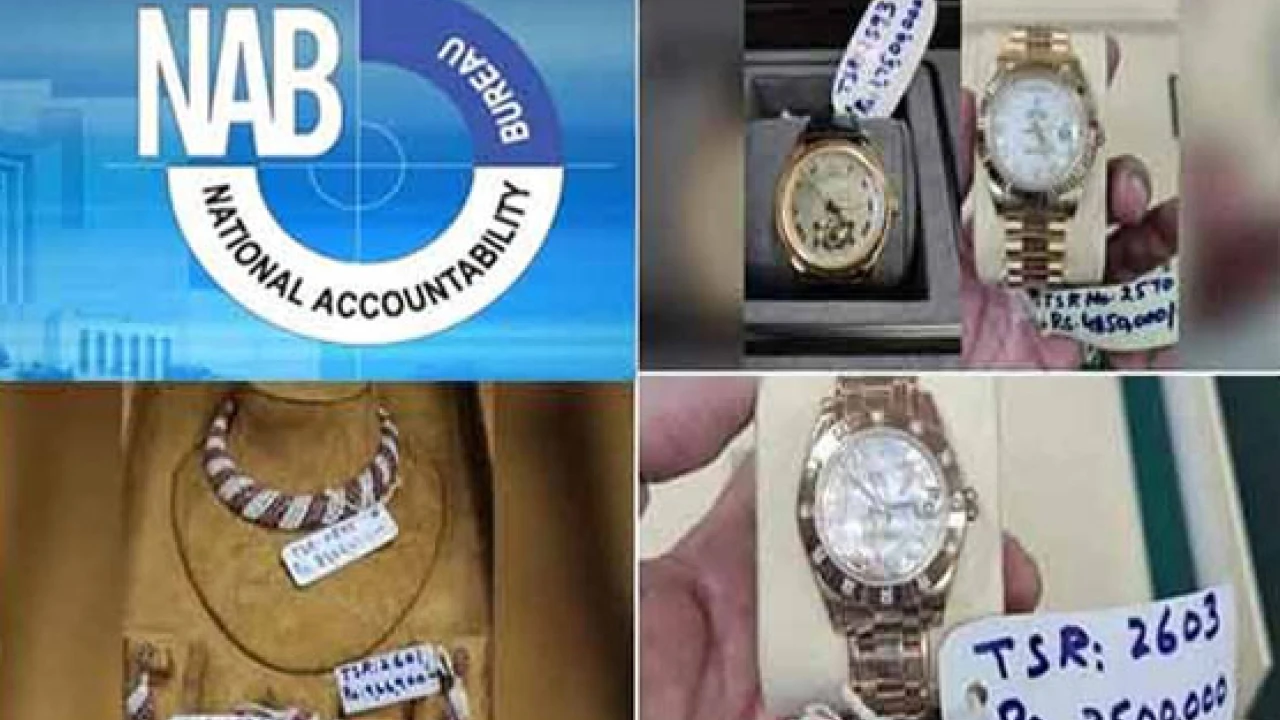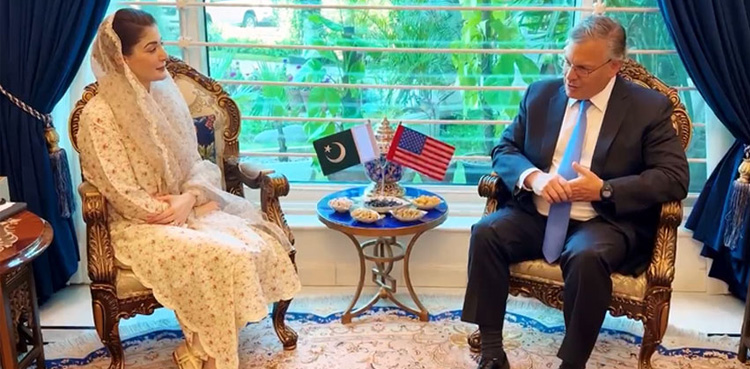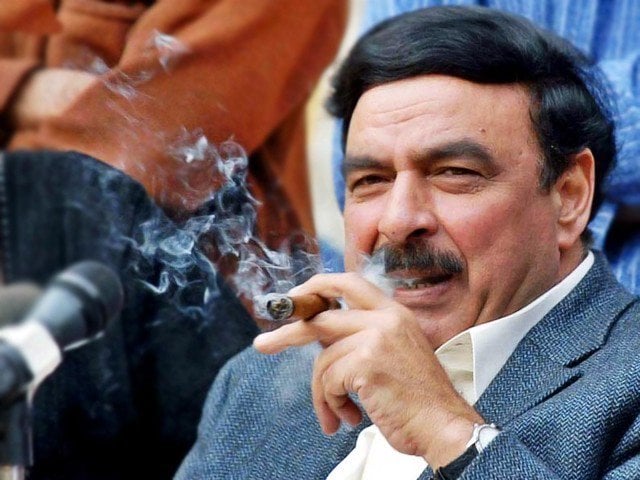On Friday, the much-awaited election for the chief minister of Punjab, as against PTI’s expectations, took a dramatic turn and PML-N’s candidate Hamza Shahbaz successfully retained the province’s top post, defeating Punjab Assembly Speaker Chaudhry Pervez Elahi with three votes.
Following the counting of votes, Punjab Assembly Deputy Speaker Dost Mazari, citing Article 63(A) of the Constitution, rejected 10 votes cast by PML-Q members. As a result, Hamza received 179 votes, while Elahi managed to bag 176 votes.
The Supreme Court of Pakistan, back in May, had ruled the votes of dissident members of the Parliament (MPs), cast against their parliamentary party’s directives, cannot be counted.
The apex court, issuing its verdict on the presidential reference seeking the interpretation of Article 63(A) of the Constitution related to defecting lawmakers of the PTI, had said that the law cannot be interpreted in isolation.
During today’s ruling, Article 63(A) was applied after PML-Q President, Chaudhry Shujaat, wrote a letter to the deputy speaker, saying that he had directed the party not to vote in anyone’s favour. According to the party, it was PPP Co-chairman Asif Ali Zardari who had convinced Shujaat.
In response to the decicion, members of the PTI and its allied PML-Q, contested that Sajid Bhatti was the party’s parliamentary leader, therefore, Shujaat’s letter held “no value”. Unable to convince Mazari, the PTI said it would now approach the SC against the deputy speaker’s decision.
To understand the situation better, Geo News and Geo.tv reached out to legal experts to share their two cents on the situation.
‘Unconstitutional move’
Shedding light on the matter, senior PTI leader Barrister Ali Zafar claimed that the ruling of the deputy speaker was “unconstitutional”, adding that the SC will soon issue a verdict on the matter.
He said that when it came to casting a vote of no-confidence, the party head had no role to play, adding that the parliamentary party was the first one to decide who to vote for.
Zafar said that at the time of the no-confidence motion, PTI Chairman Imran Khan had written a letter to the National Assembly speaker, while notices to the defecting members were issued by the general-secretary of the party.
‘Ruling legally flawed’
Barrister Ahmed Pansota, speaking to Geo.tv, said that in his view, under Article 63(A), the party parliamentary head’s directions cannot be disregarded.
“In today’s case, PML-Q’s parliamentary party head was apparently Sajid Bhatti, who had directed members to vote for Pervez Elahi. Therefore, the deputy speaker’s ruling appeared to have been legally flawed and the 10 votes of PML-Q members have been wrongly pushed aside,” he said.
He added that since the candidate for the CM’s post (Elahi) was from the same party, how could the party members vote against him, especially in light of the recent SC judgement.
About the application of Article 63(A), Pansota opined that the law concerned is being widely misquoted. “I, therefore, think that if the PTI approaches the SC, a verdict will be decided in favour of Elahi.”
‘Ruling in line with SC’s order’
Talking to Geo News, Supreme Court Bar Association’s (SCBA) president Ahsan Bhoon said that the deputy speaker’s ruling was “in line with the orders of the Supreme Court”.
“We had previously objected to the decision of the SC because it should have made decisions under the Constitution of Pakistan instead of favouring one person,” Bhoon said.
‘Deputy Speaker’s decision not correct’
Agreeing with Barrister Pansota and Ali Zafar, former senator Aitzaz Ahsan said: “I think the decision of the deputy speaker was not correct because the first part of Article 63(A) talks about the discretion of the parliamentary party, while the second part sheds light on the decision-making power of the party head.
“There is wisdom in that [clause] because the parliamentary party can make better decisions,” Ahsan said, adding that what Zardari did (by convincing Shujaat), “was his right as that is what politicians do”.
“If Shujaat only sent the letter to the deputy speaker, then it has no legal status,” he said.
‘Ridiculous legal wrangling in Punjab Assembly’
Agreeing with other lawyers, Barrister Asad Raheem Khan said that the deputy speaker’s ruling was “entirely illegal”.
“The text of Article 63(A) is clear: voting is per the direction of the parliamentary party, and not the party head,” he said, adding that the speaker also misinterpreted the Supreme Court judgment.
“The party head only comes into play during defection proceedings. Prior to casting the vote, it is the direction of the parliamentary party that must be taken into consideration,” he said, adding that neither the letter of the law nor the judgment of the Supreme Court enables the deputy speaker to reach the ruling he did.
“This is ridiculous legal wrangling in the Punjab Assembly,” he opined.
‘Case will now be decided by same SC that put us here’
Lawyer Salaar Khan explained the verdict in “simple terms”, saying that the deputy speaker refused to count PML-Q’s votes because Shujaat wrote a letter directing members of the party to vote for Hamza, not Elahi.
“This was possible because the SC, in May, held that votes against the directions of a party’s head couldn’t be counted — a decision criticised by many at the time. But it is now the law. That particular SC decision benefitted the PTI and led to today’s elections,” said the lawyer.
However, the legal expert said that it was not as clear as it seemed.
“The deputy speaker said the SC had clarified that if the ‘head’ of a political party issued directions, votes contrary to it could be excluded. But that’s not what the SC said and that’s not what the law says,” wrote Khan in a Twitter thread.
“The Constitution says that votes contrary to the directions of the ‘Parliamentary Party’ will render you liable to disqualification. The SC, in its order, added that those votes won’t be counted either. The deputy speaker’s interpretation re: the Head was his own.”
The lawyer also said that the Supreme Court has not clarified whether directions of the party head is equivalent to the directions of the party itself.
“Again, the PTI’s own precedent casts a shadow over this. PTI disqualified defecting members because they voted against Imran Khan’s directions; there was no decision by a majority of members. But once again, all of this will now be decided by the same SC that put us here,” said the lawyer.
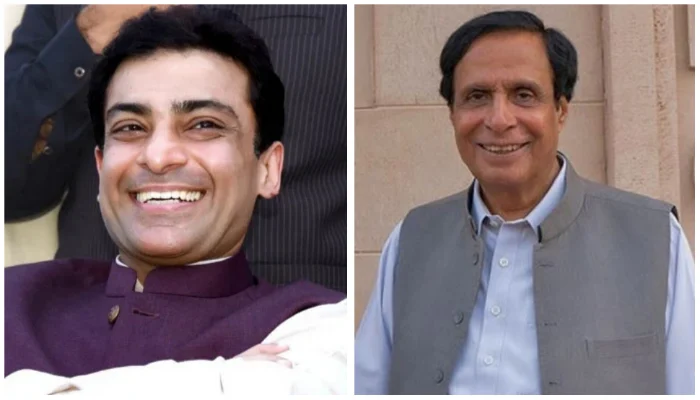

 Latest News2 days ago
Latest News2 days ago
 Business2 days ago
Business2 days ago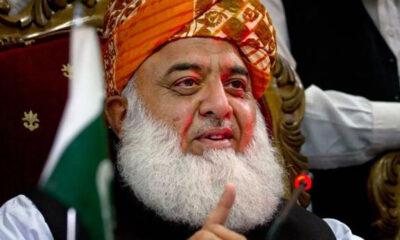
 Latest News2 days ago
Latest News2 days ago
 Business2 days ago
Business2 days ago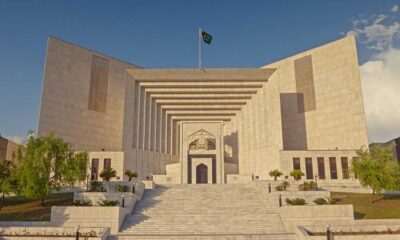
 Latest News2 days ago
Latest News2 days ago
 Latest News2 days ago
Latest News2 days ago
 Latest News2 days ago
Latest News2 days ago
 Latest News2 days ago
Latest News2 days ago


